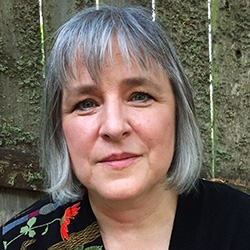
Search Results: neurobiology
-
This is an opportunity to explore/transform a limiting belief you have about yourself using what science is discovering about neurobiology. A limiting belief is simply an idea or thought we have about ourselves/life that we or others have affirmed over and over again – these ideas usually get in the way of living life fully.
-
CNVC Certified Trainer Anne Walton leads us through a guided visualization to help us make a shift in ideas we hold about ourselves. (Edited and Updated 10/6/2019)
-
-
-
Join CNVC Certified Trainer Eric Bowers in journeying through the world of Interpersonal Neurobiology (IPNB) as he expands on the theories and tools from his book Meet Me In Hard-to-Love Places: The Heart and Science of Relationship Success. You'll discover why IPNB and NVC complement each other so well, especially in the powerful practice of Somatic-Based Resonant Empathy.
-
Join Eric Bowers in transforming past relationship pain, coming alive in community and creating thriving relationships. This 12 session Telecourse recording brings together Eric's passions for Nonviolent Communication, Attachment Theory and Interpersonal Neurobiology.
-
Sometimes there are moments when empathy has no effect at all on one another. Why? One reason could be that our brains maybe less receptive because of unseen forces that affect our nervous system and relationship to others...
-
Sometimes there are moments when empathy has no effect at all on one another. Why? One reason could be that our brains might be less receptive because of unseen forces that affect our nervous system and relationship with others.
-
Sometimes even a very skilled empathy practicitioner can go into offering a non-empathic response, even when asked for empathy. Why? One reason could be that our brains might be less receptive because of unseen forces that affect our brain and relationship with others. This article speaks to the deeper "why" and also to one thing we could do to turn it around...
-
Does your inner dialog sound supportive and encouraging - or more like you’re being yelled at by a critical task-master? Gain an understanding of the neuroscience of the left and right hemispheres of the human brain and locate just where this savage inner voice is coming from and how to respond to it with empathy.
-
When we're faced with certain situations we tend to go into a fight, flight or freeze mode. While these can sometimes be helpful and even lifesaving, they can also be crippling when the situation may not be life-threatening. In this episode, we give you some tips on how to shift into a more intentional way of handling difficult situations.
-
In our fast-paced, busy lives it is tempting to practice NVC mostly with the left hemisphere of the brain, thinking through the steps quickly without slowing down to connect more deeply with feelings and needs. Don't miss an opportunity to integrate the hemispheres of the brain and the valuable information from the neural networks in the heart and gut.
-
What's really going on underneath the surface when we bring or encounter blame, judgements, pain -- and thereby the inability to empathize, be present, attuned, or responsive? Why does this happen even if one or more people in a relationship dynamic is working hard at bringing in an NVC response? This article addresses these and more questions from the perspective of how our brains are affected in our relationships.
-
Join Eric, as he reveals a clear path from heartbreaking intimate relationships to joyful, thriving intimate relationships. Eric uses his passion for helping singles heal from their past relationships, to help you to experience more ease, joy and mutuality in future relationships.
-
One way to understand trauma is it means we got a blow greater than our nervous system can tolerate – then we move into hyperarousal, and then hypoarousal or dissociation. This cycle can continue long after. Here, we're not able to fully process emotional cues, information, our body, and others. It's important we consider re-writing the cultural paradigm of separation so that our trauma doesn't get marginalized.
-
Want to learn how to live your life more fully than you ever dreamed? In this course you’ll learn how you can shake off old behaviors that no longer serve you, get inspired to embrace a daily happiness practice, and begin experiencing a brand new sense of personal joy and inner peace.
-
This resource is free for all to enjoy during May. Sarah Peyton explains how your brain's left hemisphere excels at pattern making. NVC can help integrate both hemispheres, enabling you to use the left side's love of patterns for abstract thinking.
-
- Celebrate and nurture your relationship to the Earth — and each other!
- Explore your connections to family, partner, work, nature, self and more
- Discover new ways to grow in community and work together to make this world a better place
- Engage and immerse yourself in NVC while making new friends!
-
- Look at your old patterns with warmth – while also opening yourself up to change.
- Increase your self-compassion – and gain a solid ground to stand on.
- Become intimate with your own survival strategies – and those of the people you love.
- Support healing and connecting in your long-term relationships – even when it seems there is no resolution in sight!


















